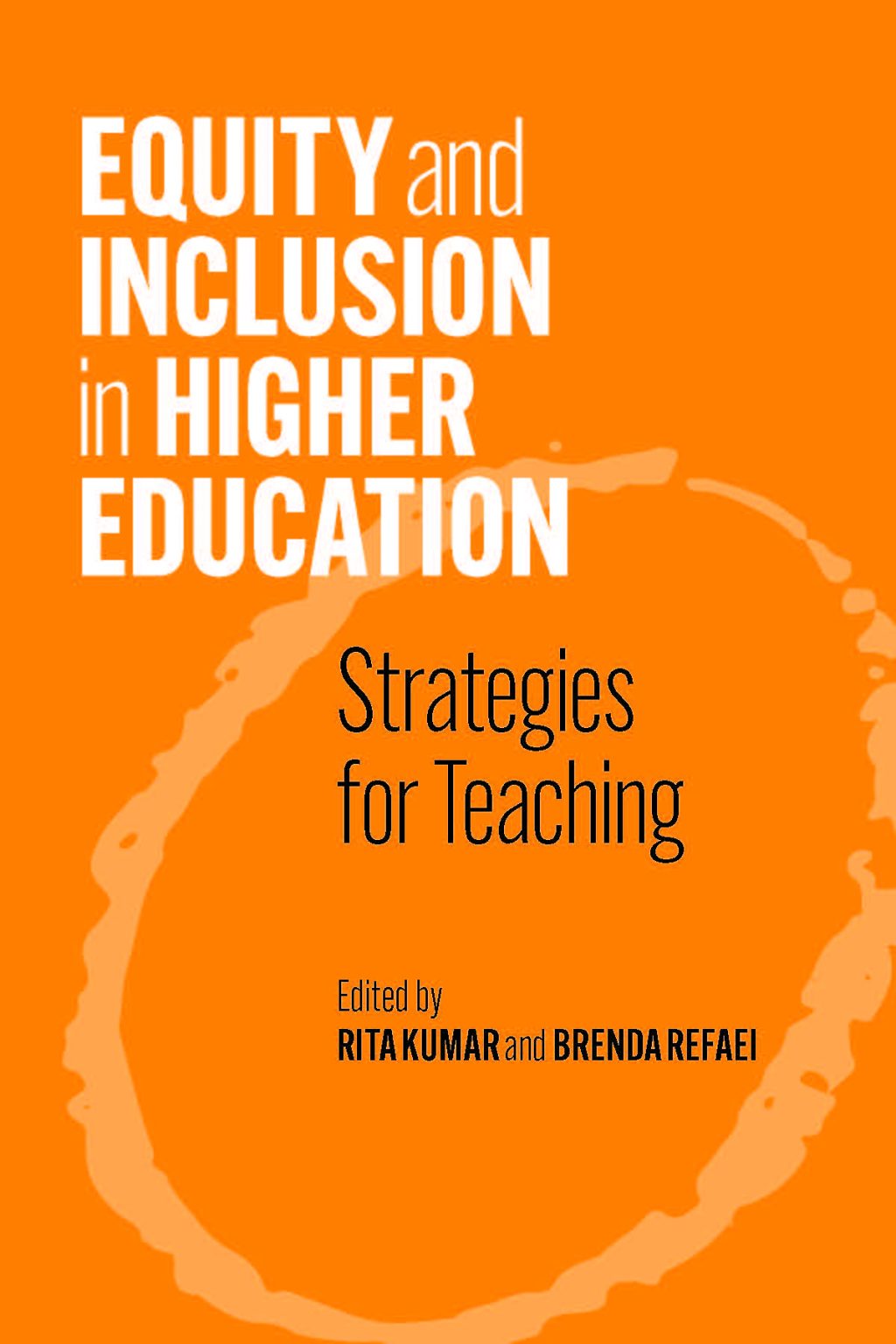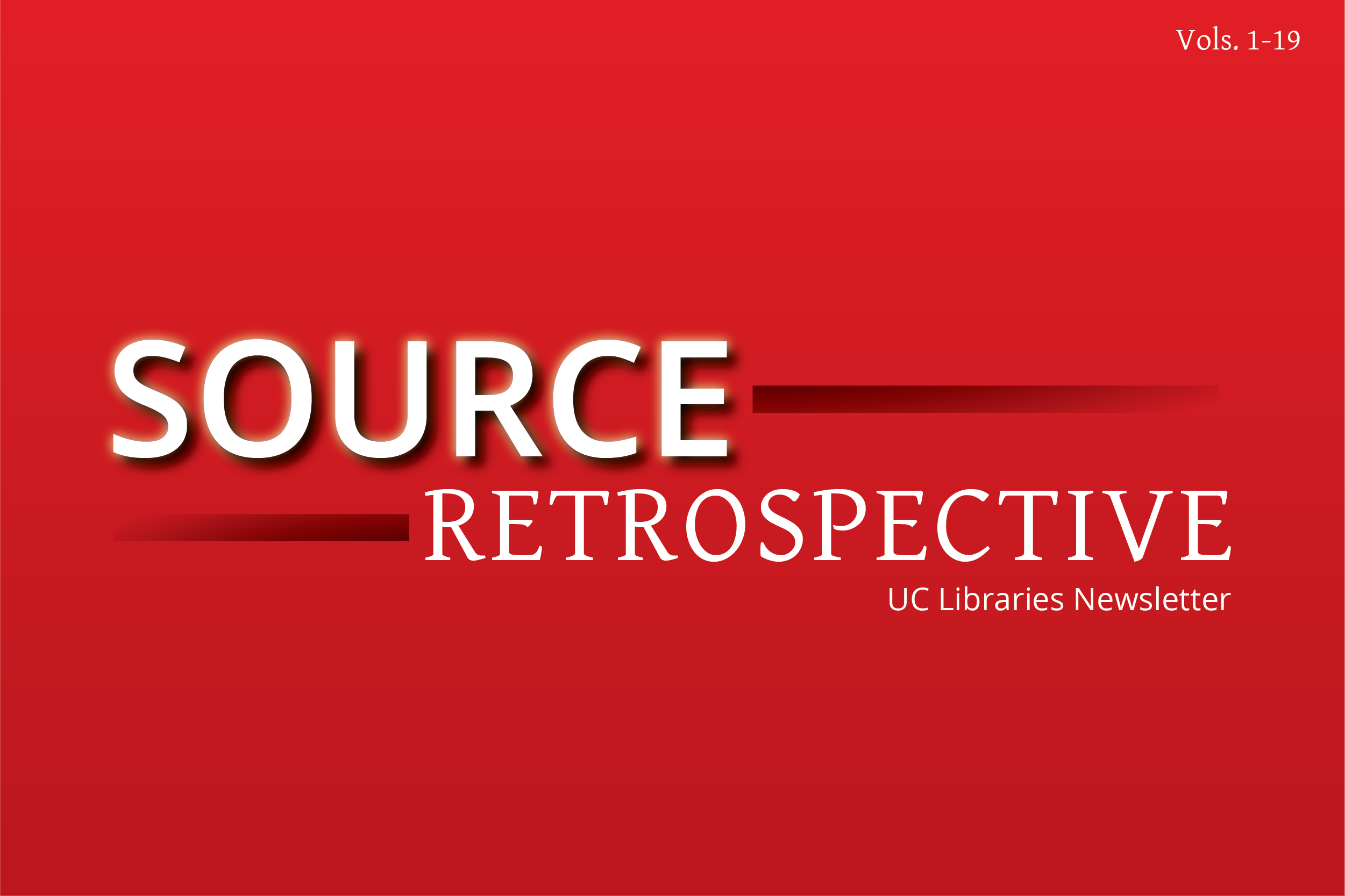
A new book published by the University of Cincinnati Press focuses on Equity and Inclusion in Higher Education
The University of Cincinnati Press, part of UC Libraries, has launched a new list in Higher Education. An expansion of their mission to publish social justice, academic-community partnership and regional studies books, the Higher Education list will address issues of equity and disparity on college campuses. The first book published in the list is Equity and Inclusion in Higher Education: Strategies for Teaching, edited by Rita Kumar, executive director of the UC Faculty Enrichment Center (FEC), and Brenda Refaei, co-director of the UC Blue Ash Learning + Teaching Center. The book’s timely release coincided with students and faculty return to campus in August and centers on ways faculty in higher education can meet the changing demographics of the today’s college classroom.


Kumar and Refaei invited 36 higher education leaders in teaching and diversity from public and private colleges and universities across North America to collaborate on essays that create awareness through a theoretical framework along with practical guidelines, examples and rubrics for how to create cultural awareness and cultural respect in the classroom. Divided into social sciences, humanities and STEM sections, Kumar and Refaei set out to share their knowledge and experience creating equity-based learning environments as a way to improve student engagement and student success. Like the contributing authors in the book at their own campuses, Kumar and Refaei drive diversity efforts here at the University of Cincinnati at their respective centers through workshops, programs and pop-up events, as well as in their own classrooms.
Liz Scarpelli, director of the Press, calls this book a groundbreaking resource for university leaders and professional development program directors, as well as faculty in every college classroom. While elementary and secondary educators often have such training as part of their teacher education coursework, there are few opportunities for faculty to get training in this at the college level. Finding ways to create an inclusive classroom for international students, non-native speakers, first generation students, students from different cultural or economic backgrounds, physically diverse and neurodiverse students strengthens the learning process for everyone.
“Equity in the classroom is a social justice challenge that is solvable,” says Scarpelli. “Equity and Inclusion in Higher Education was a perfect book for the Press to publish because it not only exposes the problem, but presents solutions for improvement. Among the pillars of our Press are to develop books that put theory into practice and create community dialog around topics.” In order to keep the book a reasonable length, and allow the community of readers to share their strategies, the Press developed a free companion site on their open access Manifold platform. Here, readers will find discipline-specific activities and modules and can leave annotations which can be seen and commented on by anyone who visits the site.
Both Kumar and Rafaei’s centers are among those on campus that offer resources for faculty and staff to continue education regarding understanding and incorporating diversity strategies and resources into their job. They state that “developing inclusive classrooms is a continual process that involves faculty who are open to self-examination, and are willing to explore new pedagogies, to analyze different curricula, and to adopt new means of assessment.” In addition to their book, Kumar and Rafaei suggest faculty consult the Faculty Enrichment or Teaching and Learning centers on their own campus. If workshops are not available, ask for programming to be created.
The University of Cincinnati FEC will hold intercultural competence through faculty training on the following dates:
- September 29, 2021, 13th Annual Equity & Inclusion Conference
Held virtually the full day Community Education & Workshops offers 20 events that discuss multiple topics from Creating a Culture of Inclusion to Exploring Implicit Bias.
- October 21st, 2021, 2:00 pm, Generation Z Heads Back to Campus: The Essentials to Understanding Your Student
Look at the Gen Z student of 2021 from a historical and current vantage point. Background will be given on who they are socially, culturally, economically, and politically. This is a complementary session to the Gen Z student panel “Straight from Gen Z’s mouth: Considering Generational Differences in Student Interaction.” FEC Conference Room 540 F/G
To purchase a copy of Equity and Inclusion in Higher Education: Strategies for Teaching edited by Rita Kumar and Brenda Rafeai at a 20% discount with the promo code EIHE20 the UC Press web site.



